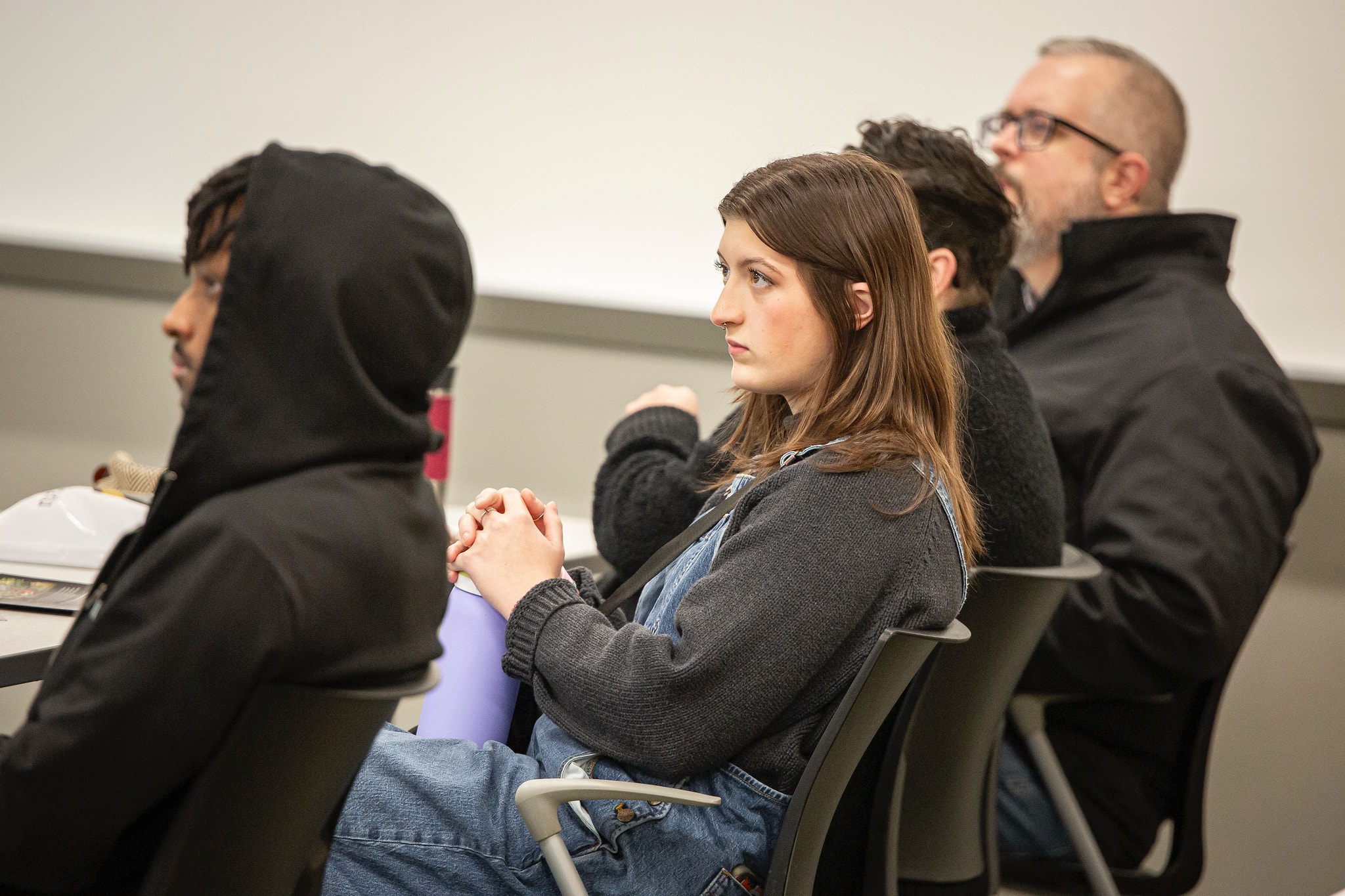Psychology: Cognitive Neuroscience
Cognitive neuroscience is a rapidly growing field due to significant technological advances in brain imaging techniques. Understanding how the brain functions can help us to better understand cognitive processes and human behavior.

Earn a Bachelor of Science in Cognitive Neuroscience or Minor in Cognitive Neuroscience
As a student majoring in cognitive neuroscience, you’ll gain a solid understanding of:
- the relationship between brain and behavior
- cognitive processes involved in a wide variety of human activities
- brain activity that occurs in both normal and abnormal brain function
- imaging techniques and neuropsychological tests that are used to diagnose and understand Traumatic Brain Injury and disease processes such as Alzheimer’s, Parkinson’s, stroke and brain tumors
Program Information:
Major | BS
- 47-48 Credit Hours
Minor
- 20 Credit Hours
Location
- North Manchester
Why Choose MU for Psychology: Cognitive Neuroscience

Program Highlights
- Our graduate school admission rate is consistently around 95%.
- Students in our program are conducting research and attending academic research conferences as soon as their sophomore year.
- Our curriculum is well-rounded to introduce you to all major fields of psychology, as evidenced by our strong record of student performance on the Major Field Test in Psychology, a nationwide standardized test taken by seniors.
What You Can Do with Your Cognitive Neuroscience Degree
Research Assistant
Support design/data collection in neuroscience or psychology labs.
Data Scientist
Model cognitive data and build predictive algorithms.
Neuroimaging Technician
Operate MRI/EEG scanners and process imaging datasets.
Lab Technician
Perform experiments and maintain neuroscience lab equipment.

Average Starting Salary for Cognitive Neuroscience Degree Holders
Quick Highlights:
-
95% placement in jobs, further study, or service within 6 months
-
Careers include hospital clinical roles, neuropsychology, school psychology, and neuroscience research
-
Annual starting salaries: $38k–$67k+, depending on role and degree
-
Psychologists (including clinical, counseling, school, and neuropsychologists) are projected to see 7% employment growth from 2023 to 2033, faster than the average across all occupations

About the Cognitive Neuroscience Program
Our curriculum is well-rounded to introduce you to all major fields of psychology, as evidenced by our strong record of student performance on the Major Field Test in Psychology, a nationwide standardized test taken by seniors.
Meet the Faculty
FAQs About Manchester University’s Cognitive Neuroscience Degree
What are the post-graduation outcomes for this program?
When can students start doing research or lab work?
What makes the Cognitive Neuroscience concentration different from a standard Psychology major?
It blends foundational psychology with biology-focused courses like Neuropsychology and Cognitive Neuroscience and emphasizes hands-on lab and neuroimaging experiences.
Psychology: Cognitive Neuroscience Learning Outcomes
Program Learning Outcomes
1. Students will demonstrate content knowledge and applications in the major areas of psychology: memory and cognition, perception/sensation/physiology, developmental, clinical/abnormal, social, and measurement and methodology.
Student Learning Outcomes:
- Evaluate concepts, principles, and theories in psychological science for a deeper understanding of behavior.
- Apply psychological content to solve practical problems.
2. Students will investigate psychological phenomena with the principles of scientific reasoning.
Student Learning Outcomes:
- Interpret, design, and evaluate psychological research.
3. Students will develop skills in self-regulation and communication to manage themselves, their work, and their interactions with others.
Student Learning Outcomes:
- Present psychological research and ideas in multiple formats and to different audiences.
Non-Discrimination in the Admission Process
Manchester University is committed to non-discrimination in campus life. The University does not discriminate on the basis of national origin, ancestry, race, color, age, sex, gender identity or expression, sexual orientation, familial status, religion, disability or veteran status in admissions or any area of campus life, including its educational programs, scholarships and loan awards, residence life programs, athletic programs, extracurricular programs, promotion and tenure policies and practice, and alumni affairs.
Manchester University is committed to carry out the provisions of Section 504 of the Rehabilitation Act of 1973 and the Americans With Disabilities Act, which provide for accessibility of University programs to the physically disabled.









